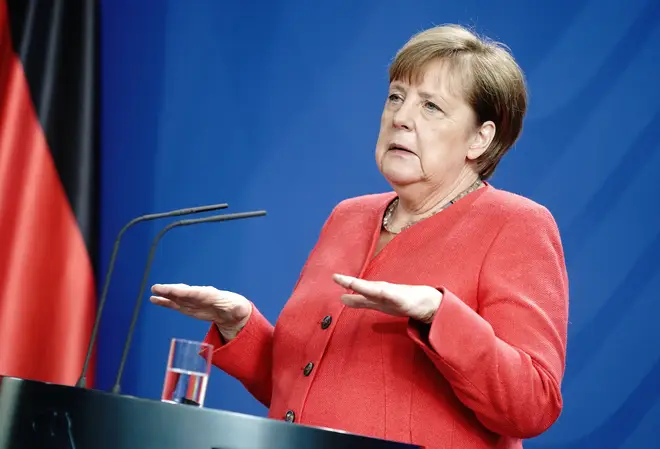
Clive Bull 1am - 4am
22 June 2020, 11:03

Why is Germany's R-number rising and are the government worried?
The rate of infection of coronavirus in Germany has shot up this weekend. With the UK looking to loosing lockdown measures, why has it happened and is it something we can learn from?
Germany has been hailed as one of the countries which dealt with coronavirus most successfully, with fewer than 9,000 deaths, compared with over 42,000 in the UK.
But this weekend, the R-number, the rate at which the virus is transmitted to other people, has rocketed from below one to 2.88.
LBC looks at why that has happened - and is this something the UK needs to worry about as the country starts to re-open.

The R number stands for the rate of infection. It represents the average number of people one infected person passes a virus on to.
It is used to describe the rate of infection of all viruses and needs to be decreasing before current lockdown measures can be lifted. Keeping the rate "as low as we possibly can" is vital for beating coronavirus. If R is above 1 then people will pass it on to more than one individual on average, meaning controlling the spread of coronavirus will be difficult to control.
However, if it is below 1, it means that people are passing on the virus to less than one other person on average, meaning overall the rate of infection - and therefore the number of people with the virus - will begin to decrease.
In the UK in March, at the peak of coronavirus' infection rate, R stood at around 3.0. But since lockdown and social distancing measures were introduced, it has now dropped below 1 and stands between 0.7 and 1.0.

The new surge of Covid-19 cases have been reported in hospitals, care homes, refugee centres and following religious gatherings.
The Robert Koch Institute, who measure the number, said in a statement: "Since case numbers in Germany are generally low, these outbreaks have a relatively strong influence on the value of the reproduction number.
"Further developments need to be monitored closely during the upcoming days, especially in regard to whether case numbers are increasing outside of outbreak contexts."
Kate Brady, the Political Correspondent for Deutsche Welle, based in Berlin, told LBC that the government is not worried and believe they have the outbreaks under control.
She said: "The authorities are not all that concerned at the moment. This is a result of the cluster infections that have popped up in various places across Germany in the last few days.
"That said, they are keeping an eye on the number and what is concerning is if these new cases start to spread outside of the isolated areas."
Those isolated areas include slaughter houses in western Germany, where more than 1,300 employees have tested positive for Covid-19.
Whole apartment blocks in Berlin have also been put under quarantine for two weeks to control the spread of the virus.
Ms Brady concluded: "We could see this number stay high for the next few days, but the overall number of new cases across Germany is still relatively low.
"The concern is to ensure that doesn't spread out of those isolated cases."

Germany helped to track the localised outbreaks using their Track & Trace system.
The UK launched their system earlier this month and the government claim this will be able to track any localised outbreaks in the same way.
However, the system will be manual following the failure of the app trial on the Isle of Wight. So will the human tracing be successful enough to allow the UK to control the spread of the virus in the same way that Germany can?
Listen & subscribe: Global Player | Apple Podcasts | Google Podcasts | Spotify